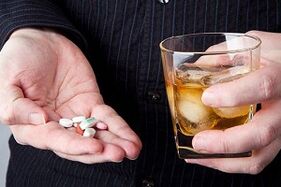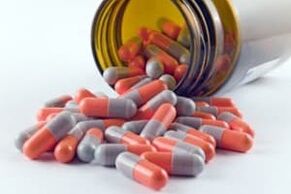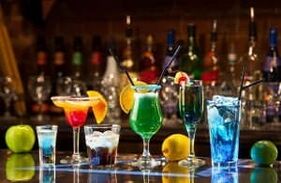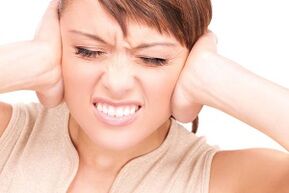Everyone knows that under no circumstances should you combine alcohol and antibiotics, but now that the course of treatment is complete and the last pill has been taken, and it is not clear how much alcohol is impossible to take after taking antibiotics? Should I wait a few days or get a few glasses that evening? To answer this question, you need to understand in more detail how antibacterial drugs and alcohol affect the body and how long it takes to drink after treatment to avoid harm to health.
How many days after antibiotic treatment can you drink alcohol?

Drugs from this group are prescribed for the treatment of inflammatory diseases that the body can not cope with. Antibiotics attack pathogens, destroying cell structures, so the disease is reversed and the patient feels better.
However, there is another side to taking antibacterial drugs. Since its removal from the body falls entirely on the liver, it must receive a significant blow. Experts have also shown that the effectiveness of treatment in people who drink alcohol during antibiotic therapy is much lower than in patients who stop drinking completely.
It all depends on the drug used for treatment. It is best to check this question with your doctor. It will give you detailed information after you can return to your normal lifestyle and drink alcohol. If it is not possible to contact a doctor, you can carefully review the instructions for the drug.
It should be noted there:
- Duration of treatment;
- This drug is compatible with ethanol;
- The period during which you should not drink alcohol after the end of therapy.
The ban generally lasts between three and seven days. It all depends on the type of drug and the duration of its elimination from the body.
If there is no information in the description about the compatibility of a drug with alcohol, it does not mean that you can start drinking immediately after the end of the course of treatment.

In any case, it is recommended to wait at least a day to allow the remaining components of the drug to leave the body.
Keep in mind that although the drug instructions do not mention the interaction with ethyl alcohol, you should not drink alcohol immediately after antibiotics. It can damage the immature body after the disease and cause unwanted side effects.
Which antibiotics should never be combined with alcohol?
Despite all the prohibitions of doctors, some patients treated with antibacterial drugs are still able to drink strong drinks. At the same time, they do not think about the possible consequences and refer to the fact that all the bans of doctors are nothing but an unnecessary measure. In fact, if the simultaneous use of alcohol and drugs does not affect the patient's well-being in any way, it does not mean that everything passes without a trace for the body.
Ethyl alcohol and drug components may not interact directly, however, ethanol may significantly reduce the therapeutic properties of the drug and the effectiveness of treatment. The disease will not go back anywhere and will require an additional course of therapy, which will place a high burden on the liver and other organs of the excretory system.
There is also a group of antibacterial drugs, against the background of which it is strictly forbidden to drink alcohol. Information on alcohol incompatibility is provided in the explanations for these drugs, in addition, the patient must be notified by the doctor responsible for prescribing the drug.
Drugs that are completely incompatible with ethyl alcohol include:

- Tetracyclines.It is widely used in medical practice for the treatment of various infectious diseases.
- Levomycetins.Drugs in this group can cause serious side effects in themselves, and concomitant use with strong drinks can aggravate the toxic effects of the drug.
- Lincosamides.Drinking alcohol while taking these antibiotics has a negative effect on the central nervous system and liver.
- Aminoglycosides.Some of the most powerful antibacterial agents that do not work well with other drugs. It is strictly contraindicated to drink strong drinks during treatment with these drugs.
- Cephalosporins.Disulfide-like reactions may occur due to the concomitant use of these drugs with strong drinks. The person will experience severe intoxication symptoms that can lead to significant deterioration in health.
- Tuberculosisantibiotics.
- Macrolides.The interaction of these substances with ethanol has a strong toxic effect on the brain and liver.
- Antibioticsare used to treat leprosy.
There are some groups of antibacterial drugs, the explanations of which do not show how they interact with ethyl alcohol.
These medications include:
- antifungal agents;
- Penicillin drugs and others.
The fact that the instructions for use do not contain information about the effects of the combination of these drugs with alcohol does not mean that their combination is allowed. It should be borne in mind that each person's body is unique, and after the combination of alcohol and antibacterial substances, someone will survive, and someone is at great risk.

How long can you drink alcohol after treatment with antibacterial drugs? It all depends on the type of antibiotic and the patient's physical condition. If the annotation indicates that it is forbidden to drink alcohol while taking the drug, then it is better to wait until the remaining components of the drug are completely removed from the body. It usually takes about two weeks, so it is better to wait until the end of this period with strong drinks.
If the instructions for a drug do not indicate the characteristics of its interaction with ethanol, it is better not to drink alcohol for at least three days after the end of therapy.
If you have additional questions, you can contact your doctor. It will explain in detail whether alcohol consumption is possible when taking one or another antibacterial drug, and will tell you how long it is best not to drink alcohol after the end of therapy.
Possible results of merging
Alcohol after antibiotics can trigger unwanted symptoms and adverse reactions in the body. The fact is that there are a number of antibiotics in the body that can prevent the breakdown of ethanol. Therefore, acetaldehyde stops being excreted from tissues and organs and begins to accumulate inside.
In this case, the body is poisoned and the person experiences terrible symptoms of intoxication:

- nausea and vomiting attacks;
- An unbearable headache that painkillers can't relieve;
- Dizziness;
- difficulty breathing;
- Chest pain;
- Redness of the skin;
- sweating;
- Rising or falling pressure.
This is far from a complete list of the terrible consequences of combining alcohol and drugs.
It is important to remember that clinical studies to date have shown that only a small number of antibiotics are compatible with ethanol. The rest is either not fully understood or is in doubt.
In any case, a person should know that drinking too much has a negative effect on the healing process. Ethanol inhibits the normal absorption of drugs and significantly reduces their effectiveness. For this reason, you should refrain from any alcohol, even the weakest, during therapy.
This will help you to avoid unpleasant side effects and stay healthy. After all, no one can say exactly how alcohol and antibacterial drugs will affect a person's health at the same time.
























